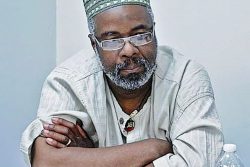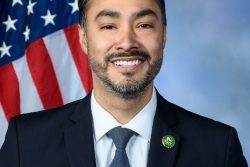The fallout of the Elections Com-mission’s recent difficulties in getting government approval for the release of funds has stoked concerns about the administration’s financial control over independent agencies and calls for the issue to be put to the court for a ruling.
Guyana Elections Commission (GECOM) commissioners have voiced concerns about the body being “constrained” by its having to obtain the approval of Cabinet for some budget requests and accompanying delays that have seen it racking up millions in debt. GECOM, like the Parliament Office, the Office of the Auditor General, the Supreme Court, the Office of the Director of Public Prosecutions and the Office of the Ombudsman, was identified as a budget agency by the Fiscal Management and Accountability Act of 2003. GECOM Chairman Dr Steve Surujbally has said that while the Act encroaches on the Commis-sion’s constitutional mandate, it is an issue that the body has left to be resolved by the Parliament since it created the problem.
But AFC MP Sheila Holder told Stabroek News yesterday that referring the issue back to the National Assembly is a “cop out” on the part of the GECOM, since the government, which has a majority, is not in favour of allowing institutions to operate independently. “…The government refuses to devise a mechanism to allow them to operate independent of the executive,” she explained, noting that while models exists elsewhere there is no political will to go in such a direction.
Holder emphasised that “finances are fundamental to independence” and she felt GECOM should demand that the state respect its independence as constitutionally-defined.
She urged more “strenuous advocacy” to ensure that the administration does not encroach on its independence. She further said that in the absence of any political will to respect the independence of constitutional bodies, one course of action to be considered would be to seek a ruling from the courts.
Holder also noted that the issue has cropped up at the level of the Parliamentary Management Committee, since Speaker Ralph Ramkarran has to secure Cabinet’s approval in order to travel out of the country on parliamentary business.
In fact, the administration’s control over the Parliament’s budget was one of the issues flagged when Sir Michael Davies was tasked with doing a Needs Assessment of the Assembly by the Commonwealth Parliamentary Association in 2005. The situation, along with the executive’s control over the hiring of the parliamentary staff, was highlighted as severely inhibiting the Parlia-ment’s independence.
GAP-ROAR MP Everall Franklin characterised the situation where bodies such as GECOM, the National Assembly, and the Supreme Court have to wait on the government to have their budgets approved as being in keeping with the “bait and control” policy of the administration. “There can be no real democracy if constitutional bodies are beholden to the executive,” he said.
“We have in principle a “pretend-ocracy,” where institutions are set up but are not free to function due to the repressive conditions of going cap-in-hand to the executive, which in our case is really the President,” he added.
In January 2007, Franklin had successfully moved a motion that resulted in the setting up of a Special Select Committee to look at the arrangements for the Parliament to hire its own staff and the Speaker to appoint the Clerk after consultations with all parties.
The staffing like the budget had been raised also by the World Bank-funded Guyana Fiduciary Oversight Project report for implementation.
However, the delay in completing the committee’s work has prompted criticism that the government is filibustering.
A senior government official has said that while the administration agrees to the recommendation that the Parliament be in control of its own budget, it is concerned that “control by the parliament does not threaten the integrity of the Government’s established mechanisms for ensuring responsible fiscal management.”
According to Franklin, the issue has not been pursued for “obvious reasons,” although it is still engaging the attention of a committee. He noted that while it had been envisaged that the Parliament Office would present its own budget as a result of its autonomy, it was figured in the motion since he thought at the time that it would be better “to fight one thing at a time.”
Franklin, however, said that all independent agencies should present their budgets for approval to the Parliament, which would refer to Finance Ministry solely for scrutiny of the allocations. He said the Parliament’s audit department should make half yearly reports to the Assembly, after passing it through the Parliamentary Manage-ment Committee.
“It is indeed dumb that Parliament approves other agencies funding and has no power to do so for itself,” he added.
On Tuesday, Commissioners Vincent Alexander and Moen McDoom noted the constraints GECOM faced by virtue of its being a budget agency. Alexander specifically cited the recurring delays in paying scrutineers and outstanding debt owed to contractors for work done in the preparation for local government elections, which were due to be held this year.
According to him, the money was not released and there was no explanation by the government. McDoom admitted that there were “problems” between GECOM, the Finance Ministry and OP, which they were trying to work out. He also noted that for previous elections, the Commission did not experience any problems in sourcing funds.
Accountant and attorney Christopher Ram told Stabroek News that the identification of GECOM and other independent bodies as “budget agencies” began with the Act in 2003.
He recalled that at the time activist and commentator Eusi Kwayana had “raised the problem” of independent organisations being made subject to the “whims” of the Ministry of Finance. “The effect is to make it dependent on the Ministry of Finance, rather than on the National Assembly, for money to carry out its duties and functions,” Ram said in a letter, published in last Thursday’s edition of this newspaper. He added that under the Act, “the government holds the purse strings and hates being challenged, let alone defied.”
The Financial Management and Accountability Act, which the Fiscal Management and Account-ability Act replaced in large part, did not identify budget agencies.
Like Holder, Ram said he believed that GECOM should approach the court for an interpretation, in light of the apparent contradiction between the Constitution and the Act, which ties it to the government’s financial regime. He noted that an alternative arrangement could be implemented where the Parliament would vote in bloc on funds for the commission.







